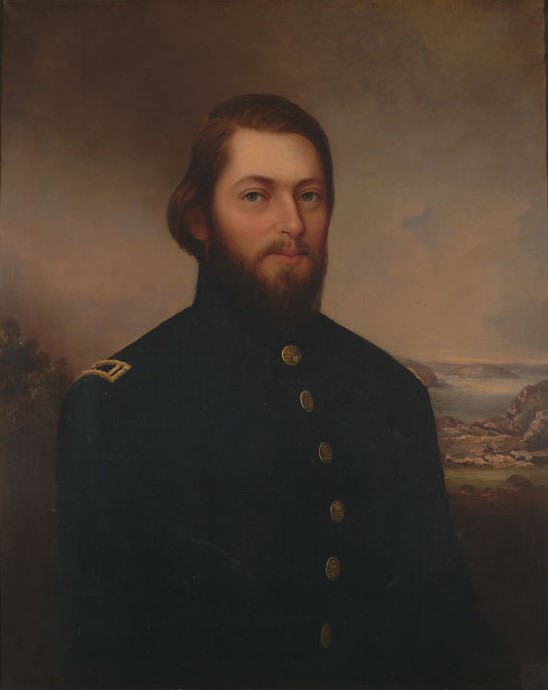Get Today in Masonic History into your Inbox. Sign up today for one of our email lists!
Need an article for your Trestleboard/Newsletter see our Use Policy
George Horatio Derby is Born

Today in Masonic History George Horatio Derby is born in 1823.
George Horatio Derby was an American soldier and humorist.
Derby was born on April 3rd, 1823 in Dedham, Massachusetts. His father worked in the mercantile business until he quit his job to write poetry, spending all of the family's money on self publishing. He attended West Point military academy, graduating in 1846.
Derby's first service was during the Mexican-American war. He served at Vera Cruz and the battle of Cerro Gordo. At the battle of Cerro Gordo, Derby was wounded.
In 1853, Derby was reassigned to San Diego, California, at the time a small outpost in California. He began mapping the region and developing plans for redirecting the San Diego River so it flowed directly into the ocean instead of into San Diego bay which periodically flooded, filling the bay with silt making it difficult for ships to use the bay.
Shortly after arriving in San Diego, Derby met his future wife, Mary Coons. Mary tricked Derby into marrying her by placing a notice in the paper stating she planned to travel back to Missouri with her mother. She had no intention of leaving California and Derby took the bait. This was despite Mary's family being wary of Derby who was seen as having an erratic and flippant manner, which infuriated his superiors.
While waiting for his plans for the diversion of the San Diego River to be approved, Derby began writing for a local paper, the San Diego Herald. He wrote under the pseudonym John P. Squibob, also known as John Phoenix and just Squibob. His articles were written as a first person narrative poking fun at the figures and pretenses of high society, all from the view of John Phoenix. Eventually a competing newspaper began publishing articles claiming to be from Squibob. Derby quickly wrote an article killing off Squibob and continued under the John Phoenix name.
In 1855, Derby bought the San Diego Herald and continued to run it until 1860 when the newspaper closed it's doors. Shortly after this, Derby made a joke about the plans to redirect the San Diego River, he claimed they were engineered 180° out. His superiors in Washington, D.C. were not amused with his humor and Derby was reassigned to mapping duty in California and the Arizona deserts.
In 1857, Derby came down with amaurosis, a sudden unexplained loss of vision, which caused him to be unable to read or write. Modern historians believe he actually suffered from a brain tumor. He took leave in 1859 and traveled back east to New York where he lived out the remainder of his life. He passed away on May 15th, 1861.
In a recently published book, Autobiography of Mark Twain, Vol. One, Twain interviewed Ulysses S. Grant who it is claimed was a classmate of "Squibob." Grant told several stories about Derby while at West Point. There is some question about this, since Grant and Derby were at West Point together for only a one year overlap.
Derby's masonic history is somewhat scattered due to his military career. What is known is he was a member of Federal Lodge No. 1 in Washington D.C. It is unclear if he was raised in the lodge or merely affiliated. He was the Junior Warden of there before demitting. Next he was a member of Benecia Lodge No. 5 in Benecia, California. In 1851 he was the Worshipful Master of Temple Lodge No. 14 in Sonoma, California. In 1853 he was the first Worshipful Master of San Diego Lodge No. 35 in San Diego, California. He was also a member of Columbia Chapter No. 15, Royal Arch Masons and Washington Commandery No. 1, Knights Templar both of Washington, D.C.
This article provided by Brother Eric C. Steele.

